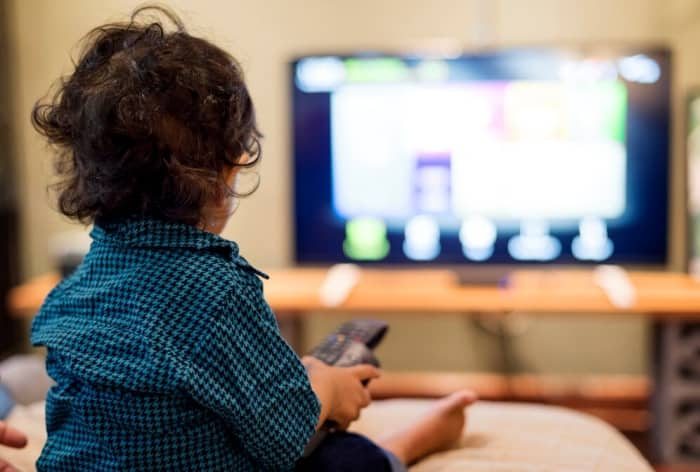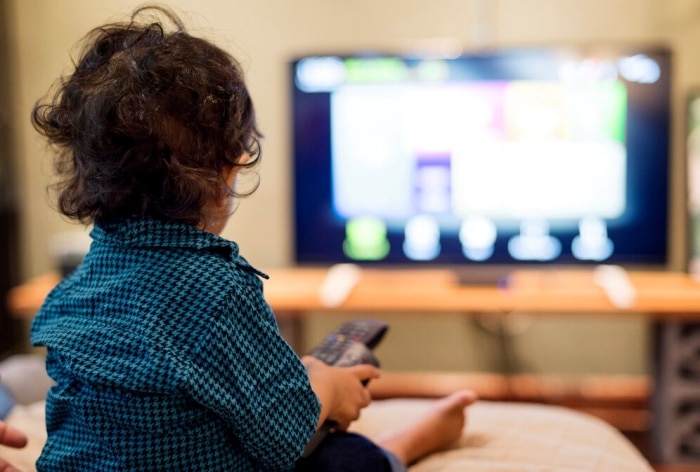Excess of anything is bad, and too much of exposure to TV may have side effects on babies.

Babies and toddlers exposed to television or video viewing may be more likely to exhibit atypical sensory behaviours, such as being disengaged and disinterested in activities, seeking more intense stimulation in an environment, or being overwhelmed by sensations like loud sounds or bright lights, warned a study.
According to researchers at Drexel University, children exposed to greater TV viewing by their second birthday were more likely to develop atypical sensory processing behaviours, such as “sensation seeking” and “sensation avoiding,” as well as “low registration” — being less sensitive or slower to respond to stimuli, such as their name being called, by 33 months old.
Sensory processing skills reflect the body’s ability to respond efficiently and appropriately to information and stimuli received by its sensory systems, such as what the toddler hears, sees, touches, and tastes.
The findings add to a growing list of concerning health and developmental outcomes linked to screen time in infants and toddlers, including language delay, autism spectrum disorder, behavioural issues, sleep struggles, attention problems and problem-solving delays.
“This association could have important implications for attention deficit hyperactivity disorder and autism, as atypical sensory processing is much more prevalent in these populations,” said lead author Karen Heffler, Associate Professor of Psychiatry in Drexel’s College of Medicine.
“Repetitive behaviour, such as that seen in autism spectrum disorder, is highly correlated with atypical sensory processing. Future work may determine whether early life screen time could fuel the sensory brain hyperconnectivity seen in autism spectrum disorders, such as heightened brain responses to sensory stimulation.”
For the study, published in the journal JAMA Pediatrics, the team pulled 2011-2014 data on television or DVD-watching by babies and toddlers at 12, 18 and 24 months.
The findings suggest at 12 months, any screen exposure compared to no screen viewing was associated with a 105 per cent greater likelihood of exhibiting “high” sensory behaviours instead of “typical” sensory behaviours related to low registration at 33 months.
At 18 months, each additional hour of daily screen time was associated with 23 per cent increased odds of exhibiting “high” sensory behaviours related to later sensation avoiding and low registration.
At 24 months, each additional hour of daily screen time was associated with a 20 per cent increased odds of “high” sensation seeking, sensory sensitivity, and sensation avoiding at 33 months.
“Considering this link between high screen time and a growing list of developmental and behavioural problems, it may be beneficial for toddlers exhibiting these symptoms to undergo a period of screen time reduction, along with sensory processing practices delivered by occupational therapists,” said Heffler.

